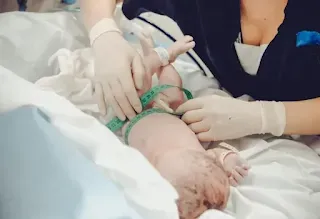Born in 1978, Durga was India’s first test tube baby. Discover her story, the scientist behind her birth, and the truth India took years to accept.
Wasn’t just a medical miracle — she was a symbol of forgotten genius, controversy, and one scientist’s lifelong fight for recognition. Her story started in 1978, in a modest Kolkata lab, and shook the foundations of Indian science and society.
Who Was India’s First Test Tube Baby?
Her name was Durga — known today as Kanupriya Agarwal. She was born on 3 October 1978 in Kolkata, just two months after the world’s first IVF baby, Louise Brown, was born in the UK.
Unlike the global fanfare that greeted Brown, Durga’s birth was met with silence and eventually, denial. That’s because the doctor who created her — Dr. Subhas Mukherjee — was never recognised during his lifetime.
Meet the Real Pioneer: Dr. Subhas Mukherjee
Dr. Mukherjee was a brilliant reproductive scientist who achieved something that had never been done in India: he successfully developed an IVF embryo using techniques he invented himself, without funding, international help, or modern equipment.
- He used homemade tools, hormone therapy, and cryopreservation — years ahead of global science.
- He documented his work thoroughly and requested permission to present it internationally.
- Instead, he was ridiculed by a government committee that included no fertility experts.
Denied permission to travel or publish, Dr. Mukherjee died by suicide in 1981. It took India over two decades to admit the truth: he was the real pioneer of IVF in the country.
Why Was His Contribution Ignored?
In 1978, India’s scientific establishment was slow to believe that such advanced technology could come from one person in a government hospital — without foreign collaboration or equipment.
Many believed IVF was only possible in wealthy Western nations. Dr. Mukherjee's lone-wolf brilliance challenged that narrative — and he paid the price for it.
Recognition That Came Too Late
In 2002 — 21 years after his death — the Indian Council of Medical Research finally acknowledged Dr. Mukherjee’s work. He is now posthumously credited with producing India’s first test tube baby.
Durga, now a mother of two and a marketing professional, publicly thanked him on her 40th birthday: “It took the country 25 years to recognise the person who gave me life.”
Why This Story Still Matters
This isn’t just a piece of medical history — it’s a lesson in sexism, scientific politics, and lost legacy. The global IVF movement now credits figures like Robert Edwards (UK) and Patrick Steptoe. But India had its own hero — and ignored him.
Thanks to Dr. Mukherjee’s early research:
- India is now one of the largest IVF markets in the world
- Over 2,500 IVF clinics operate across the country
- IVF success rates have doubled in the past 20 years
Today, IVF is a $720 million industry in India — expected to cross $1.2 billion by 2027.
What Happened to Durga?
Durga, now known as Kanupriya Agarwal, lives in Delhi and works in advertising. She’s a mother herself — proving the long-term success of early IVF.
She rarely gives interviews but has said, “I wasn’t born in a petri dish. I was born from my mother’s courage and a doctor’s mind.”
Internal Resources from ichhori
Quick IVF Timeline
- July 1978: Louise Brown born (UK) — world’s first IVF baby
- October 1978: Durga born (India) — world’s second, Asia’s first
- 1981: Dr. Mukherjee dies by suicide
- 2002: Indian Council finally acknowledges him
- 2025: IVF in India helps over 300,000 couples per year
FAQs
Who was India’s first test tube baby?
Durga, born on 3 October 1978 in Kolkata. Her birth was made possible by Dr. Subhas Mukherjee.
Was she the world’s first?
No, the first was Louise Brown (UK). Durga was the world’s second and Asia’s first.
Why wasn’t Dr. Mukherjee credited at first?
His work was dismissed due to bureaucratic politics and lack of understanding. It was validated posthumously in 2002.
Is IVF common in India today?
Yes. Over 2,500 clinics operate nationwide, with demand rising among both married and single women.
Final Thoughts
The story of India’s first test tube baby is also the story of a brilliant doctor silenced by systems that failed to believe in homegrown genius. Durga’s birth marked a medical milestone — and her legacy continues every time a family builds hope in an IVF clinic.
Dr. Mukherjee may not have seen the future he helped build, but his work lives on in every baby born with science, hope, and resilience.

